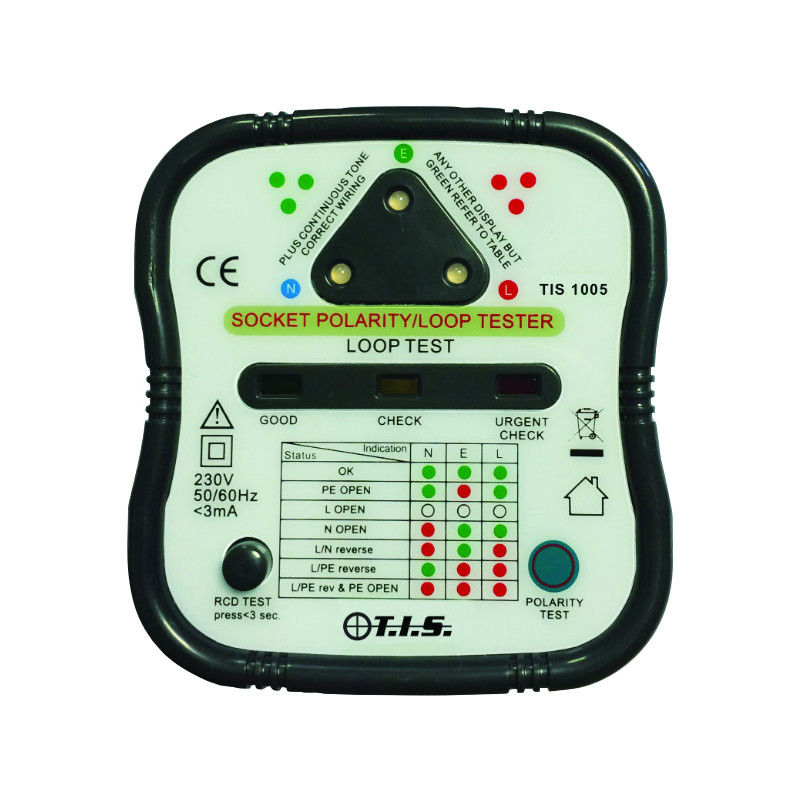A socket tester like this
with a loop test will show if there is a good earth, note must have loop test, this one £40 from toolstation and they all cost around that price and likely you would pay an electrician less to test the washing machine and socket, plus when you look at the spec for most of the testers they are designed to test radial circuits of 16A as used in Europe not the UK ring final so the pass figure is higher than the pass figure required in the UK. Typically these plug in testers pass at 1.9Ω and UK ring final should be lower than 1.36Ω but it will highlight most faults with socket outlets.
The DNO earth that's the one connected to all sockets may not be the same potential as true earth or the earth on the house, the limit is 50 volt, however I would be starting to get worried at 10 volt and would want to know why, my daughter was caught at around 4 year old licking a 9 volt battery with tongue she liked the tingle it produced, that is about lowest voltage you will feel, with 24 volt wagon batteries in the winter when wet and covered with salt I could feel them, but no real discomfort, so unlikely your wife can feel 4.8 volt, and unlikely that is a fault.
More likely the carpet is not grounded so the shock is due to carpet grounding to washing machine not the other way around, however I have found socket supplies with no earth to washing machines in the past so it is a well to test, the question is not do you test, but do you test DIY or get electrician, and only you can answer that, I would unplug and with your meter check the earth pin on plug is connected to washing machine, but as to radiators so much plastic pipe is used today, plus plastic sealing tape and goo that you can't be sure radiator is earthed, 8 mA does suggest there is a problem, but as to if radiator or washing machine hard to say, today with RCD protection the limit for non fault is 9 mA for a collection of circuits, 3.5 mA one circuit before it needs special earthing, between 15 and 30 mA will trip it. So on that basis 8 mA is high, but we have no idea how the radiator is earthed.
Personally I have a 30 mA RCD well a RCBO actually, on every circuit so I do not really worry is that shock static or mains as likely any mains leakage will open a trip, not really a good thing as trips can stick, but it is like insurance, does not stop things happening but does reduce the problems when it does. So may be money better spent having a RCD fitted, even if a RCD socket or adaptor plugged into the socket. Although at the consumer unit is better. And the RCD is likely cheaper than the tester, although you should test the RCD.


